Board of directors
The Foundation is administered by a board of directors. A scientific committee is responsible for the overall strategy, gap analysis and development of the scientific programme. This committee appoints local organising committees to develop individual courses. The scientific committees control the content of courses.
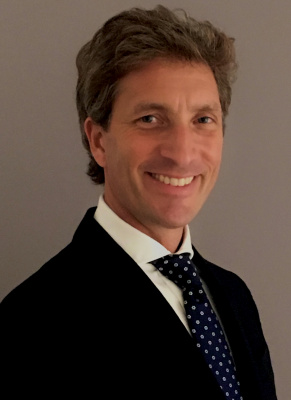
Scott Pescatore (Chairman)
Scott Pescatore has a doctorate in Pharmacy and Oncology Drug Development with over twenty years of experience in the pharmaceutical industry. Scott has been employed in the pharmaceutical sector in the US and in various European countries gaining an extensive and solid experience in top management, medical, strategic and business operations. He joined Recordati in 2020 and is currently Vice President and Director for the Orphan Drugs Business.
Scott has worked for several years in the areas of onco-haematology, rare, and severe diseases. He is particularly interested in research and development of treatments for rare diseases.
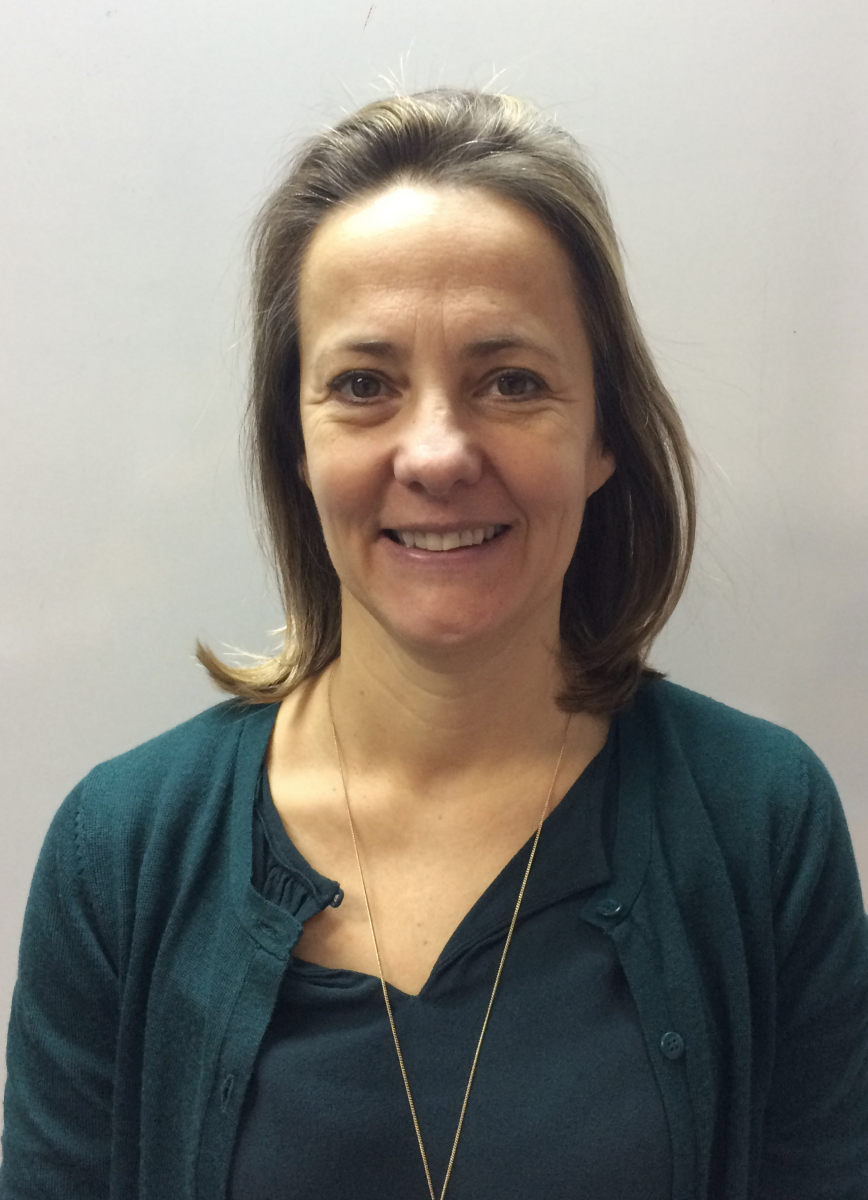
Céline Plisson (Vice Chairman)
Céline Plisson studied medicine in Paris at the Necker Children’s Hospital. She has been employed in the pharmaceutical industry for nearly eighteen years and after working in big pharmaceutical companies decided to join the Orphan Drug world to deal with research and development of treatments for rare diseases. She is currently Vice Chairman of the Recordati Rare Disease Foundation’s Board of Directors and Medical Director of Recordati Rare Diseases.
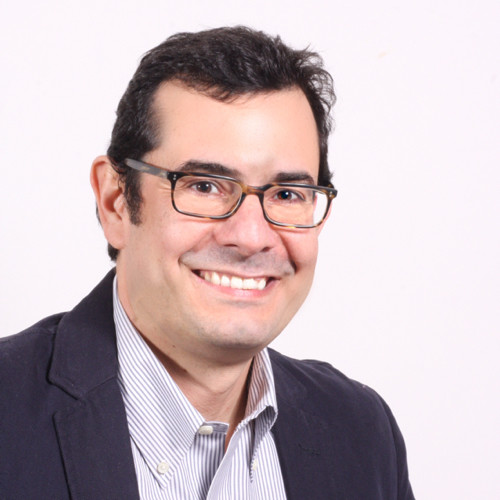
Francesco Palombi (Treasurer)
Francesco Palombi, based in Basel, CH, is currently a Head of Finance Global Rare Diseases at Recordati Rare Diseases, bringing experience from various positions in the pharmaceutical industry. Francesco Palombi holds a 1989 - 1995 Master's degree in Business administration @ Università Cattolica del Sacro Cuore. With a robust skill set that includes Controlling, Internal Audit, Financial Accounting, Financial Reporting, Strategic Financial Planning and more, Francesco Palombi contributes is the Treasurer of the Recordati Rare Diseases Foundation since 2023.

Cecilia Kellquist
Cecilia has lived and studied in France, Sweden and Switzerland. She is a graduate of the Swiss Hotel Association’s Hotel Management School “Les Roches” in Switzerland. Cecilia has a back-ground in the hospitality industry as she worked in 4* hotels in Geneva and on the French Riviera before coming to Paris where she joined Carlson Wagonlit Travel in the business travel industry. She held a position as project manager in a multinational sales and account management department managing a global CRM system providing training to the end users. She joined Orphan Europe (now Recordati Rare Diseases) in 2005 and is now the project manager of the Recordati Rare Diseases Foundation's educational activities. Cecilia has organised over 70 courses with scientists and university hospitals essentially in Europe but also in Asia, the Middle East, USA and Latin America.
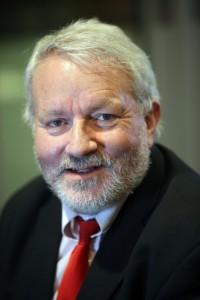
Alastair Kent
Alastair Kent OBE is the former Director of Genetic Alliance UK – the national charity of over 180 patient organisations, supporting all those affected by genetic conditions. Genetic Alliance UK’s mission is to promote the development of the scientific understanding of genetics and the part that genetic factors play in health and disease, and to see the speedy transfer of this new knowledge into improved services and support for patients.
Alastair is also the Chair of Rare Disease UK (RDUK) the national alliance for people with rare diseases and all who support them. RDUK has over 1,500 members including over 250 patient organisations, health professionals, researchers, the pharmaceutical industry and individual patients and families.
Alastair has worked in the field of genetic and rare disease healthcare for over 20 years. Alastair represents the interests of patients on numerous platforms; he is the president of the European Genetic Alliances Network (EGAN), Immediate Past Chair of the European Platform for Patient Organisations, Science and Industry (EPPOSI) and the EU Committee of Experts on Rare Diseases amongst others. He has previously been a member of the Orphan Medicinal Products Committee and Committee for Advanced Therapies at the European Medicines Agency and a member of the Human Genetics Commission.

Doctor Robin Lachamann
Robin Lachmann is the Chairman of the Foundation's Scientific Committee since 2014. He has been involved in the organisation of many courses over the years.
Robin qualified in medicine in 1990 and worked as a junior doctor in London, Cambridge and Norwich before returning to Cambridge University as an MRC Clinical Training Fellow in 1993 to do a PhD in the Division of Virology on 'Utilising Herpes Simplex Virus Based Vectors for Gene Delivery to the Brain'. After completing his PhD, he was a warded a Wellcome Trust Clinician Scientist Fellowship to work on gene delivery in Niemann-Pick Disease type C, which included a very enjoyable year in Lyon. He continues to combine research with clinical training in internal medicine and metabolic medicine until 2005, when he moved to his current post at the Charles Dent Metabolic Unit, National Hospital for Neurology and Neurosurgery in London. The Charles Dent Metabolic Unit is one of the oldest and largest centres in the world looking after adults with inherited metabolic diseases. Dr Lachmann leads a multidisciplinary team looking after over 1500 patients with more than 100 different diseases. Dr Lachmann is a communicating editor for the Journal of Inherited Metabolic Disease and chairs the SSIEM Adult Group.
Scientific committee
The scientific committee advises the Foundation and makes key decisions about projects. Its role is to:
- Define courses, and for each course, to determine a local scientific committee
- Ensure the scientific and academic quality of courses
- Develop the foundation strategy, define guidelines for the investment of assets and stipulating focal areas for educational activities.
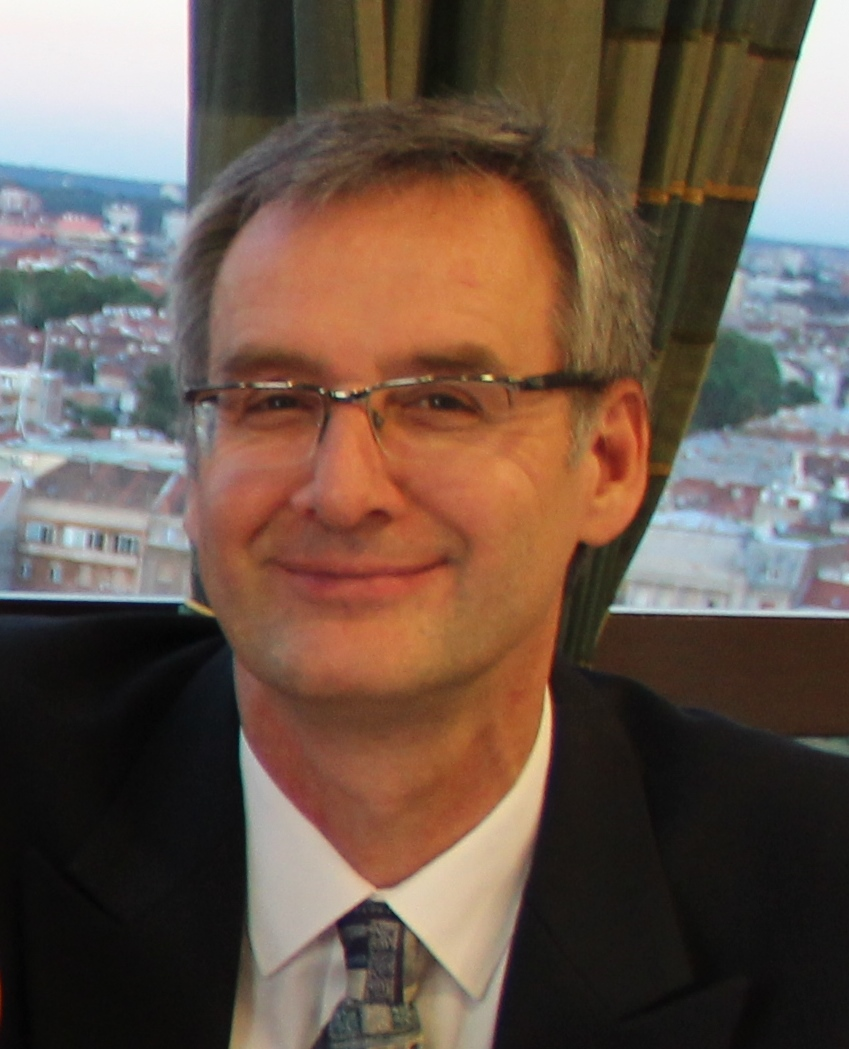
Professor Ivo Baric
Ivo Baric graduated at School of Medicine, University of Zagreb. In 1992 he further qualified as a pediatrician and obtained Ph.D. degree. Since then his focus of interest have been inherited metabolic diseases. As a fellow he spent twice ten months in Germany, in University Children’s Hospital in Heidelberg and, as Alexander von Humboldt fellow, in University Children’s Hospital in Marburg. He is subspecialist in medical genetics.
He is full professor of pediatrics at University of Zagreb, School of Medicine and head of the Division for Metabolic Diseases, Department of Pediatrics, University Hospital Center Zagreb (Referral Center for Medical Genetics and Metabolic Disease of Children of the Ministry of Health).
Professor Baric has been prinicipal investigator or coordinator for Croatia of several scientific projects and published over 100 peer-reviewed publications. He described as the first author previously unknown inherited deficiency of the S-adenosylhomocysteine hydrolase. For that work he was awarded with “Horst Bickel-Award” and „Ante Šercer-Award”.
He is council member of the Society for Study of Inborn Errors of Metabolism and communicating editor in Journal of Inherited Metabolic Disease. He is member of the European Commission Expert Group on Rare Diseases. Professor Baric was president of the Croatian Society of Human Genetics and is current president of the Section for metabolic diseases and board member of the Croatian Paediatric Society.
He is full member of the Croatian Academy of Medical Sciences and member of the Court of Honour of the Croatian Medical Chamber. He is head of the Committee for Newborn Screening of the Ministry of Health, Republic of Croatia.

Doctor Angeles Garcia Cazorla
She received her M.D. from the University of Barcelona Medical School and obtained a Pediatrics degree and a Ph.D. in medicine at the “Universitat Autonoma de Barcelona”. She did her predoctoral training in the department of Neurology, Genetics and Metabolism at Hôpital Necker-Enfants Malades (Université Réné Descartes, Paris) from 1998 to 2000, and did a post-doctoral research fellowship in the department of Neurology at Columbia University (New York, USA) from 2007 to 2008. Since 2001, she is a Staff Pediatric Neurologist in the Department of Neurology at the Hospital Sant Joan de Deu in Barcelona and will begin coordinating the Neurometabolic Unit in 2013. She founded the Synaptic Neuropediatric’s Laboratory of the Fundació Sant Joan de Déu (FSJD) in 2009. Her main research interest is in the pathophysiology of neurotransmission and synaptic communication in rare neurometabolic and neurogenetic disorders, but also in exploring common neuropediatric diseases from a “synapto-metabolic” perspective.
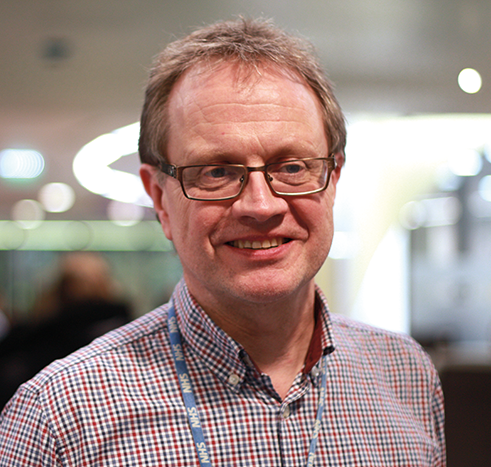
Professor Simon Heales
Neurometabolic Unit, National Hospital, Queen Square & Enzymes and Metabolic Laboratories, Great Ormond Street Hospital, London, UK.
Simon obtained his PhD from the University of Aston in Birmingham, UK and is a Fellow of the Royal College of Pathologists. Simon is the Director of the Neurometabolic Unit at the National Hospital and Head of the Enzyme and Metabolic Laboratories at Great Ormond Street Hospital. He is also a full Professor at University College London. Simon has a strong interest in the laboratory diagnosis and monitoring of patients with inherited metabolic disorders. This work is underpinned by a number of basic and translational research projects that are carried out in conjunction with the UCL Institute of Child Health. He has published over 150 papers in the area of mitochondrial, neurotransmitter and lysosomal disorders.

Professor Stefan Kölker
Prof. Dr. Stefan Kölker is Head of the Division of Inherited Metabolic Diseases at the University Children’s Hospital in Heidelberg, Germany. He graduated in Medicine (1998) at the University of Marburg, Germany, and further qualified as a paediatrician in 2006. In 2007, he was certified for Paediatric Metabolic Medicine by the European Union of Medical Specialists (UEMS) and since then has worked as a Consultant for Paediatric Metabolic Medicine at the University Children’s Hospital Heidelberg. In 2010, he became Head of the Division of Inherited Metabolic Diseases, and in 2011 he became assistant professor. He is member the Society for the Study of Inborn Errors of Metabolism (SSIEM), the Society for Inherited Metabolic Disorders (SIMD), the American Society for Biochemistry and Molecular Biology, as well as national societies for Paediatrics (DGKJ) and inherited metabolic diseases (APS).
He is coordinator of multi-centre studies on organic acidurias and chairman of an international guideline development group. Since 2011, he is coordinator of the EU-funded project “European registry and network for intoxication type diseases (E-IMD)” focusing on patients with organic acidurias and urea cycle defects, and since 2013 he and his team are also managing the patient registry of the EU-funded project “European network and registry for homocystinurias and methylation defects (E-HOD)”.
In addition to his clinical and diagnostic expertise, he has a long-standing experience in basic research focusing on intoxication type metabolic disorders and energy metabolism. He has receives grants from the European Union (via European Agency for Health and Consumers, German Research Community (DFG), Ministry of Education and Science (BMBF), and private foundations. He has published more than 100 original scientific articles in peer-reviewed journals and has received prestigious scientific awards.
He is organizer and teacher at the international courses and workshops for trainees in Paediatric Metabolic Medicine.

Doctor Robin Lachmann - Chairman
Robin Lachmann qualified in medicine in 1990. He worked as a junior doctor in London, Cambridge and Norwich before returning to Cambridge University as an MRC Clinical Training Fellow in 1993 to do a PhD in the Division of Virology on 'Utilising Herpes Simplex Virus Based Vectors for Gene Delivery to the Brain'. After completing his PhD, he was a warded a Wellcome Trust Clinician Scientist Fellowship to work on gene delivery in Niemann-Pick Disease type C, which included a very enjoyable year in Lyon. He continues to combine research with clinical training in internal medicine and metabolic medicine until 2005, when he moved to his current post at the Charles Dent Metabolic Unit, National Hospital for Neurology and Neurosurgery in London.
The Charles Dent Metabolic Unit is one of the oldest and largest centres in the world looking after adults with inherited metabolic diseases. Dr Lachmann leads a multidisciplinary team looking after over 1500 patients with more than 100 different diseases. Dr Lachmann is a communicating editor for the Journal of Inherited Metabolic Disease and chairs the SSIEM Adult Group.
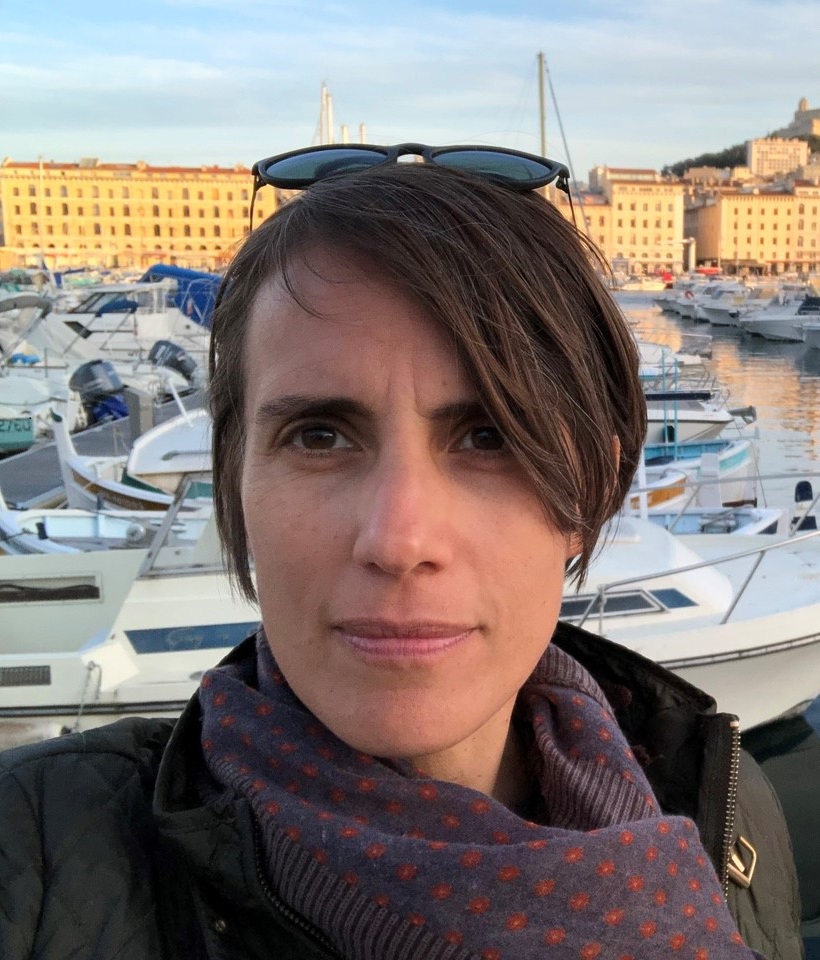
Doctor Fanny Mochel
Fanny Mochel is an associate professor of genetics at Sorbonne University in Paris. She received her MD in Genetics in 2005 at the University Paris Descartes, her PhD in Neuroscience in 2010 at Sorbonne University and is board certified in inborn errors of metabolism. Dr Mochel leads the French reference center on Neurometabolic diseases in adults and runs a Neurometabolic research group at the Brain and Spine Institute of La Pitié-Salpêtrière University Hospital in Paris. She is chair of the Adult group of the international Society for the Study of Inborn Errors of Metabolism and co-chair of the French society for inborn of errors of metabolism in adults. Her research is focused on the characterization and treatment of brain energy deficiencies in neurometabolic and neurodegenerative diseases. Her major areas of expertise are the identification of neurometabolic biomarkers in vivo (metabolic imaging) and in vitro (metabolomics)as well as therapeutic approaches targeting the Krebs cycle.
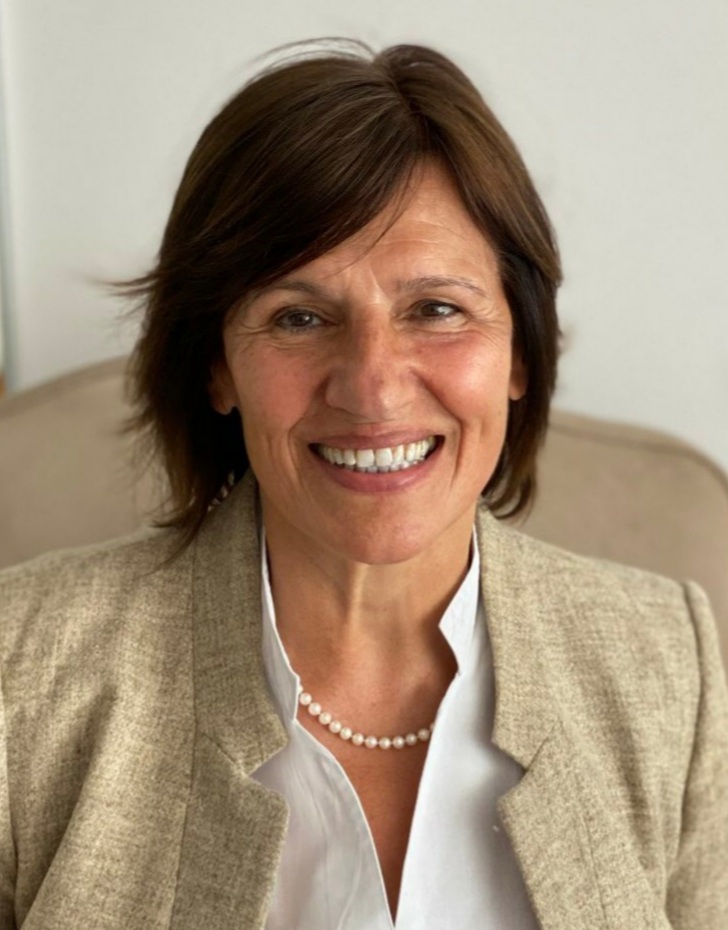
Professor Vera Popovic-Brkic
Vera Popovic-Brkic,MD,PhD is Professor of Internal Medicine at Belgrade University School of Medicine and was Head of Dept of Neuroendocrinology, Endocrinology Clinic, University Clinical Center, Belgrade for over 30 years. Dr Popovic received a medical degree from Belgrade University School of Medicine. She is a certified specialist of Internal Medicine and subspecialist of Endocrinology. She completed postdoctoral studies in Endocrinology at Bart's Hospital, London.
Prof. Dr. Popovic is a lecturer in numerous national and international meetings, postgraduate courses and in particular in numerous European Society of Endocrinology(ESE) meetings and courses. Prof. Popovic has published more than 200 peer-reviewed original research papers. She was the principal investigator (PI) for the research grant funded by the Ministry of Science Serbia since 1985. Her research studies are in the field of regulation of GH secretion (ghrelin analogs), long-acting GH molecules for GH replacement and regulation of energy homeostasis.
Her special clinical interests are hypopituitarism and management of pituitary tumors. Prof. Popovic served as a member of the Executive Committee for European Society for Endocrinology (ESE) 2007-2011 and as Vice President of ESE 2013-2017. She is awarded Honorary member of ESE in 2018 and is a member of several scientific societies related to endocrinology.
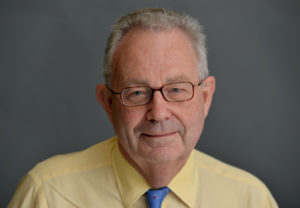
Professor John Wass
Professor of Endocrinology, Oxford University Head of the Department of Endocrinology at the Oxford Centre for Diabetes, Endocrinology and Metabolism, Churchill Hospital Oxford, until 2012.
Prof. Wass’s research interests are in the area of pituitary tumours, acromegaly, adrenal disease, angiogenesis in endocrinology, genetics of osteoporosis, thyroid disease. Prof. Wass is the Chair RCP Group on Weight and Health and Spokesperson on Obesity Royal College of Physicians. He published over 440 articles, edited different textbooks; Oxford Textbook of Endocrinology (3 editions), Clinical Endocrine Oncology (2 editions), Oxford Handbook of Endocrinology (4 editions) Prof Wass was President of the European Federation of Endocrine Societies from 2001-2003; Chairman of the Society for Endocrinology 2006-2009 and President of the American Pituitary Society.
Prof. Wass received many awards, the latest being the Geoffrey Harris Prize European Society of Endocrinology in 2021. Prof. Wass is leading the Getting It Right First Time (GIRFT) in Endocrinology, NHS England, visiting and inspecting all endocrine departments in the UK (127) and doing a national report.
